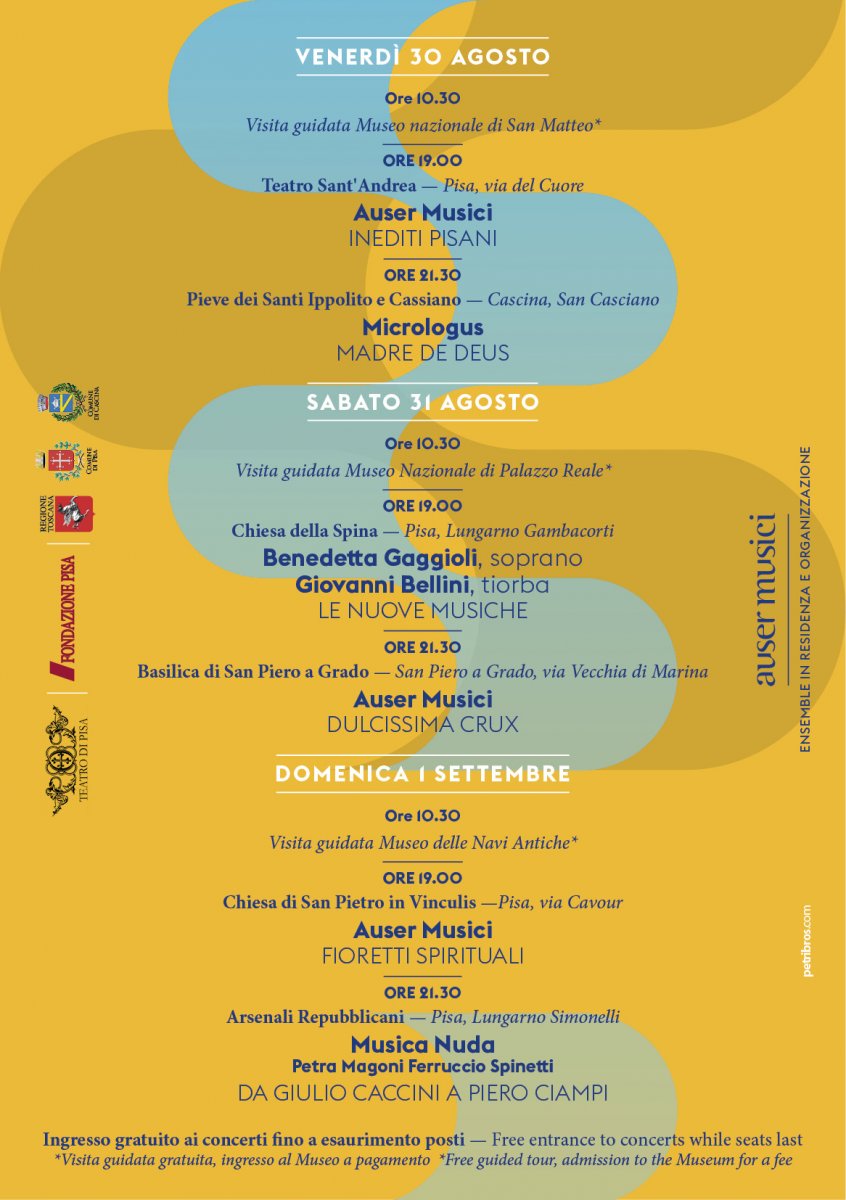
The purpose of the Festival, which is organized with Tuscan Institutions such as the Tuscan Region and the local municpalities, was and still is give value to early music in those places where it was originally played. So the Churches, the Villas, the Palaces and all of those places which have been "forgotten" by the touristic guide or that are little known and appreciated, get a new energy and the public become appassionated to music and locations.
In order to increase the musical offer and to free from the necessity of permorming too often only sacred programmes, which were the most suitable for the churches in Easter period, in 2004 the Festial began to "split" in sprign and summer period, increasing the possibilities for tourists to listen to the concerts.
In 2006 the Festival enter the eminent R.E.M.A. (European Early Music Network), and it begins to develop some important international sinergies, such as the partnership with the Slovenian festival Sevicq.
Since 2007 the Festival was then concentrated in the period June-July, leaving definitely the title and period of Holy Week Concerts.
During these years some prestigious ensembles and soloists has played in the Early Music Tuscan Festival: La Venexiana, Hommé Armée, Modo Antiquo,Rolf Lislevand (Norway), Dan Laurin (Norway), Villancico (Sweden), The Soloists of Catherine the Great (Russia), The Croatian Baroque Orchestra (Croazia) and many more.
For each edition the ensemble Auser Musici, who organizes the Festival, has proposed a production dedicated to the unedit Tuscan repertoire. For example it has been proposed some programmes entirely dedicatet to J.C. Lidarti, L. Boccherini, G.M. Cambini, etc.
The Festival has been often accompgnied by Masterclasses, convention and especially historical and artistic presentations of the places where the conceerts took place.
In 2009 the artistic direction passed to Enrico Bellei, who was also the director of the Modena Festival Grandezze e Meraviglie, but in 2011 Carlo Ipata regain the guidance.
In 2013 the Festival change period another time deciding for the end of August first half of September.








